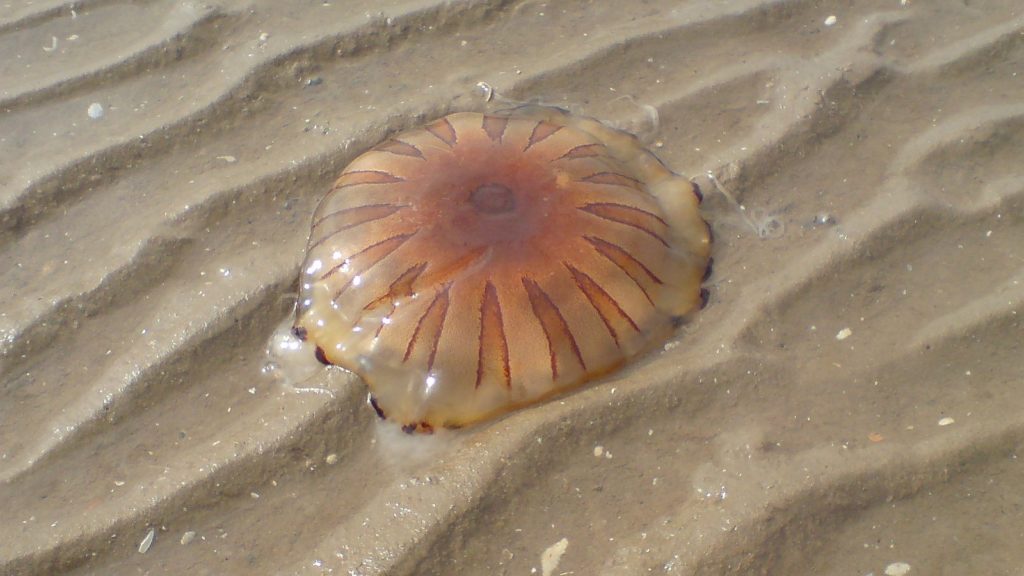If you’re heading to one of Cape Town’s beaches this weekend, you may find that much of the fluffy white sand is actually covered in jellyfish.
Over the past few weeks, a vast number of the sea creatures have washed up on some of the city’s beaches.
No ad to show here.
The Two Oceans Aquarium on Thursday detailed the phenomenon in a blog post, which has been recorded at Milnerton Beach, Lagoon Beach, Melkbosstrand, Bloubergstrand, as well as some beaches along False Bay.
The cause is not yet understood.
However, in the post, the Aquarium’s jellyfish expert Krish Lewis and Devon Bowen poses a few possiblities.
“Jellyfish are planktonic, which means that they drift with the ocean. In this case, the combination of wind and current means that we are seeing a large number of these jellies, with their vivid mature colouration, washing up,” the duo postulate.
Additionally, the large number of specimens may be the result of nutrient rich waters surrounding Cape Town.
“Sometimes this can be an indication of pollution adding nutrients to the water, but it can also be due to natural variation, eg. windborne sediments. At this point, it is not clear what the cause is,” they clarify.
But the fact that these little softies are dying in the sand is not a cause for concern, for their population number or the health of human beings.
While the species in question, called the Cape compass jellyfish, is local, it’s not endangered.
They do possess stinging tentacles too, but those on shore tend to not pose a risk to humans or animals.
“The tentacles of compass jellies are fragile and most of the washed-up specimens we’ve seen seem to have lost their tentacles, so those that are found on the beaches are unlikely to pose much risk to children, bathers and pets that may accidentally touch one,” the team adds.
It’s not the first time jellyfish have invaded the beaches of Cape Town. In 2011 over the Easter weekend, a dangerously high number were recorded off the coast of Melkbosstrand.
Feature image: Captn_Jack via Flickr (CC BY 2.0)
